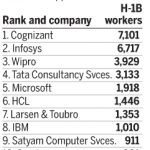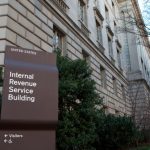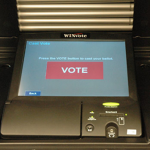Systems security in energy and utilities companies gives cause for concern

Security ratings specialist BitSight Technologies has released a new report highlighting the differences in security performance across industries from August 2014 to August 2015.
Having analyzed security ratings of nearly 10,000 organizations across six sectors -- finance, federal government, retail, energy and utilities, healthcare and education. It reveals worrying performance trends in the critical energy and utilities sector, however, the federal government (despite recent headlines) is revealed as high performing and second only to finance.
Another 9/11 anniversary passes quietly

I’ve been quiet lately, I know. My sons’ Kickstarter campaign has taken a toll on their Venture Capitalist… me. I never before appreciated the physical effort that goes into managing what is, for me, a significant investment. They do the work but I pay for a lot of it and that brings with it the need to oversee -- something I’ve never been very good at doing. You’ll see the result, hopefully, next week.
While I’ve been so preoccupied a lot has happened in the technology world. Apple introduced a slew of new products and Alex Gibney released his Steve Jobs documentary. I’ll comment on both of these shortly. Yahoo was denied its tax-free Alibaba spinoff and so has to go to Plan B. I have such a Plan B (or C or D) for Yahoo, myself and will explain it soon. There are some new technologies you ought to know about, too. There are always those.
Apple and Microsoft are winning the PR game against the US government

Microsoft and Apple are battling the US government over the right to keep their users’ data safe, and according to a report by The New York Times, the American tech companies are winning.
At least they’re winning in the public relations game, as the general notion today is that those companies are doing everything they can to protect their users’ privacy.
How Anonymous stole US government data
UK government launches voucher scheme to boost small business security

For smaller businesses cyber security isn't always their highest priority which means they can be left vulnerable to attacks.
In an effort to beef up protection for small and medium businesses, the UK government is launching a voucher scheme as part of a package of measures designed to increase the resilience of UK businesses to cyber-attacks.
The H-1B visa program is a scam

This is the second of three columns relating to the recent story of Disney replacing 250 IT workers with foreign workers holding H-1B visas. Over the years I have written many columns about outsourcing (here) and the H-1B visa program in particular (here). Not wanting to just cover again that old material, this column looks at an important misconception that underlies the whole H-1B problem, then gives the unique view of a longtime reader of this column who has H-1B program experience.
First the misconception as laid out in a blog post shared with me by a reader. This blogger maintains that we wouldn’t be so bound to H-1Bs if we had better technical training programs in our schools. This is a popular theme with every recent Presidential administration and, while not explicitly incorrect, it isn’t implicitly correct, either. Schools can always be better but better schools aren’t necessarily limiting U.S. technical employment.
U.S. government embraces HTTPS

When it comes to the web, you expect U.S. Government sites to be very secure. Hell, with all of the money we taxpayers pay, the websites should be the most secure in the world. Unfortunately, this is not the case. You see, not only are many .gov websites not secure, they do not even universally use HTTPS. In other words, there are shopping sites more secure than those of the most powerful nation in the world.
Today, however, this changes. Barack Obama's White House has completed a new standard that all U.S. government websites will be forced to follow. While it is embarrassing that this is only happening in 2015, it is better late than never.
Millions of US government workers’ records exposed by data breach

The US government has been hit by a massive data breach at the department which handles government employee records, the Office of Personnel Management (OPM). According to officials this has the potential to affect every federal agency.
The Reuters news agency says that it's been told by a US law enforcement source that a "foreign entity or government" was believed to be behind the attack. Suspicion has fallen on China although Chinese foreign ministry spokesman Hong Lei said the accusations were, "irresponsible and unscientific".
IRS hack exposes personal data of more than 104,000 taxpayers

Hackers stole personal information from more than 104,000 taxpayers this spring, the International Revenue Service (IRS) just revealed.
Commissioner John Koskinen said in a press conference that the information included several years' worth of returns and other tax information filed with the IRS, and explained exactly what happened.
Microsoft threatened job cuts to influence UK government IT policy

By threatening to implement job cuts in affected parts of the country, Microsoft tried to influence UK government IT policy. The company stands accused of trying to blackmail members of parliament when it disagreed with planned IT reforms.
The claims come from Prime Minister David Cameron's former strategy chief, Steve Hilton. He says Microsoft telephoned politicians in areas that the company has research and development departments with the threat of "we will close them down in your constituency if this goes through". And it seems that Microsoft is not alone in this sort of activity.
Tech giants asking Obama to support effective encryption, block backdoor requests

Several huge technology firms have come together to urge US President Barack Obama not to pass legislation demanding backdoor access to encrypted devices.
More than 140 companies and prominent figures in the tech industry, including the likes of Apple and Google, have sent an open letter to the White House proclaiming that "strong encryption is the cornerstone of the modern information economy’s security".
US electronic voting machines incredibly easy to hack

Electronic voting machines used for US elections between 2002 and 2014 would have been extremely easy to hack, according to reports.
The AVS WinVote machines were used during three presidential campaigns in the state of Virginia and would receive an "F-minus" for security, with many using "abcde" or "admin" as passwords.
Where the money is… or was

Yesterday was Tax Day in the United States, when we file our federal income tax returns. This has been an odd tax season in America for reasons that aren’t at all clear, but I am developing a theory that cybersecurity failures may shortly bring certain aspects of the U.S. economy to its knees.
I have been writing about data security and hacking and malware and identity theft since the late 1990s. It is a raft of problems that taken together amount to tens of billions of dollars each year in lost funds, defensive IT spending, and law enforcement expenditures. Now with a 2014 U.S. Gross Domestic Product of $17.42 trillion, a few tens of billions are an annoyance at most. Say the total hit is $50 billion per year, well that’s just under three tenths of one percent. If the hit is $100 billion that’s still under one percent. These kinds of numbers are why we tolerate such crimes.
Is the UK government's plan to fund IoT and Smart City apps a waste of £40 million?

With Chancellor of the Exchequer George Osborne’s announcement that the government will pledge £40 million in funds to develop applications for the Internet of Things and Smart Cities as part of the 2015 budget, it got me thinking about how this funding could be utilized to best effect.
Every app development provider around the country must be putting together their proposals as you read this, but is this really the best use of tax-payer’s money?
Government should not control access to hardcore porn sites

Children's access to the internet can be a very emotive issue, particularly when subjects like pornography crop up. In the UK, the General Election is just around the corner and the current ruling party, the right wing Conservatives, are pledging to introduce legislation that enforces age restrictions on access to hardcore pornography sites.
The legislation would be dependent on the party retaining power after the May election, but Secretary of State for Culture, Media and Sport, Sajid Javid says the Conservatives "will age restrict online porn" offering "safety for children and peace of mind for parents". There are just two problems. Firstly, it is completely unworkable, and secondly it is not the government's place to restrict access to the internet using legislation.
Recent Headlines
Most Commented Stories
BetaNews, your source for breaking tech news, reviews, and in-depth reporting since 1998.
© 1998-2025 BetaNews, Inc. All Rights Reserved. About Us - Privacy Policy - Cookie Policy - Sitemap.
